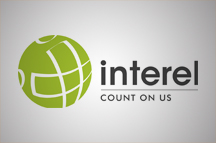 Corporate taxation is under the spotlight. With Europe’s economy still struggling, tackling tax fraud and avoidance has become a top priority for national governments and for the EU.
Corporate taxation is under the spotlight. With Europe’s economy still struggling, tackling tax fraud and avoidance has become a top priority for national governments and for the EU.
The Luxleaks scandal increased the pressure on the European Commission to ensure fair corporate taxation. The result was an Action Plan for Fair and Efficient Corporate Taxation which was published in June of this year.
This document set out a series of initiatives designed to ensure that profits are taxed where they are generated. Country-by-country tax reporting (CBCR), which requires companies to disclose the taxes they pay in every country where they operate, is one of the measures that the Commission has promised to evaluate in order to achieve this.
However, the Commission is moving slower than the European Parliament would like. At the Parliament’s plenary session in July, MEPs adopted two reports calling for public country-by- country tax reporting.
Public country-by-country reporting already exists for banks and for large extractive and logging industries, but the information requirements of each regime vary.
Genuine tax transparency depends on providing relevant information and not just data. The European Commission is now considering what information it is reasonable to disclose, who should disclose it and whether it should be made public. Much hinges on public disclosure since relevance very much depends on who will have access to the information.
While campaigners argue that public disclosure is the best incentive to change company behaviour, the risk is that data is misinterpreted and that commercial sensitivity limits the information that companies can put into the public domain.
This debate is already far advanced at the Paris based Organisation for Economic Cooperation and Development (OECD), of which 21 EU Member States are members. The organisation’s own proposal is that companies with revenue above €750M should provide tax administrations with information on revenues, profits, taxes accrued and paid, along with some activity indicators. The Commission has to decide whether it goes further in terms of the information to be disclosed and/or by making it public.
With a Commission report and a possible proposal due by the end of this year, this debate is only likely to rise up the agenda in Brussels. In the meantime, companies need to consider what a balanced country-country reporting regime might entail. The time for engagement is now.














